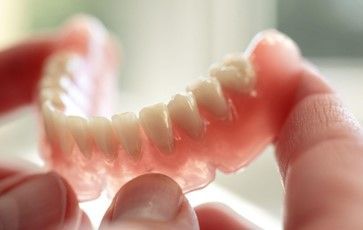
Missing teeth can affect your daily life, from difficulty chewing and speaking to feeling self-conscious about your smile. If you're struggling with discomfort while eating, trouble speaking clearly, or noticeable gaps in your smile, it may be time to consider dentures or partials. These dental solutions can restore both the function and appearance of your smile, helping you regain comfort and confidence in your daily activities.

Learn effective tips for maintaining your oral health at home, including brushing, flossing, using mouthwash, and making healthy dietary choices. Discover the importance of hydration, regular self-exams, and avoiding tobacco use to keep your teeth and gums in top condition. This guide provides simple steps to help you maintain a healthy smile and prevent oral health problems.
Read this blog to explore the differences between dental crowns and bridges, their purposes, and how to choose the best option for your dental health.

Discover how oral health and overall wellness are connected. Explore how maintaining good dental hygiene can prevent systemic diseases, support heart and diabetes health, enhance digestion, and boost mental well-being. Learn practical tips for integrating dental care into your overall health strategy.
Do you use dentures? Read our blog to learn more about how to maintain your dentures and keep them in top shape.
Read this blog to learn some common dental issues in older adults and what you can do to maintain your oral health as you age so your smile never changes.
Read this blog post to learn more about practicing preventative dental care from a young age with your children. Contact us to find out more.
In this article, you will find six compelling reasons to get a dental checkup before leaving on vacation. Keep reading to learn more.
Many seniors make common oral health mistakes that can have serious consequences for their health. Discover some of the most prevalent oral health mistakes.






